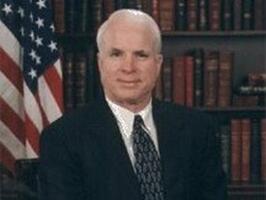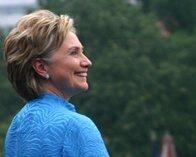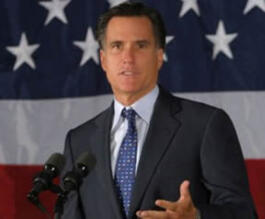A Good Time to Be John McCain
A man whose Presidential campaign was left for dead last summer has picked up a round of significant endorsements from the Manchester Union Leader, the Des Moines Register, the Boston Globe, and Senator Joe Lieberman.

A man whose Presidential campaign was left for dead last summer has picked up a round of significant endorsements from the Manchester Union Leader, the Des Moines Register, the Boston Globe, and Senator Joe Lieberman.

Those who want polls to tell them who will in Iowa will be sorely disappointed.

It’s way too early for New York Senator Hillary Clinton and her team to celebrate, but the former First Lady has gained back some lost ground in the state of New Hampshire.

When Mike Huckabee first began to gain ground in the race for the Republican Presidential nomination, many dismissed him.

In many places around the country, Mitt Romney is facing a challenge from Mike Huckabee. However, in New Hampshire, Huck-a-mania never took hold.

The war in Iraq, keeping the Internet free from regulation, and minimizing government's role in protecting privacy on the Internet, among other matters, dominate the political concerns of the American IT worker.

With less than one week left until Christmas, 69% of Americans say they’ve started their holiday shopping.

Throughout 2007, the average Hudson Employment Index(SM) for IT workers was 110.3, less than one point higher than 2006’s average of 109.6. The measure of worker confidence for IT professionals peaked to 122.6 in April, and recorded its low of the year most recently in November (103.5). See below for more detailed information.

The average Hudson Employment Index(SM) reading for the Twin Cities in 2007 was 103.6, 7.5 points higher than in 2006. Readings dropped and stayed below 100 in September, with the lowest reading of worker confidence registering in October at 88.9. The area’s strongest reading was in March, when the Index registered 114.1.

The yearly average for the Hudson Employment Index(SM) for Ohio was 102.2, up 2.3 points over last year’s average of 99.9. The state’s weakest measure of worker confidence came most recently in November (93.0), while its strongest Index reading registered in August (109.6).

Looking back over 2007, the average Hudson Employment Index(SM) for African-American workers was 90.4, five points lower than the 2006 average of 95.4. The average was on par with 2005’s 90.1. The measure of worker confidence for African-American professionals hit its year high in April at 96.8 and recorded its low of the year in November (83.6).

In its second year, the Hudson Employment Index(SM) for the legal sector recorded an average reading of 111.3 in 2007. It peaked at 123.0 in April and went as low as 98.9 in September, creating a range of 24.1 points for the remaining readings. This year’s average is just over 1 point above 2006’s average reading of 110.2.

The yearly average for the Hudson Employment Index(SM) for Texas was 123.8, up 2.8 points over last year’s average of 121.0. Texas’ average was the highest of all states polled in the Index . The measure of worker confidence for the state peaked at 131.3 in March, and recorded its 2007-low of 109.1 most recently in November. See below for more detailed information.

The yearly average for the Hudson Employment Index(SM) for Pennsylvania inched down to 103.2 in 2007, less than a point lower than last year’s average of 103.6.

Throughout 2007, the Hudson Employment Index(SM) for healthcare workers recorded an average reading of 105. It reached its peak in March, registering 111.1, and fell to the year’s low at 90.2 in November. This year’s average reading is one point lower than 2006’s average of 106. See below for more detailed information.

The average Hudson Employment Index(SM) for Boston workers in 2007 was 98.2, a mere .3 points lower than that 2006 average. It was, however, notably lower than both the 2005 average (99.2) and the 2004 average (102.7). Boston’s Index peaked in February at 105.7 but also registered another strong reading of 105.1 in May.

The average reading for the Hudson Employment Index(SM) in Dallas was 113.4 in 2007, 4.3 points higher than in 2006 (109.1). The city’s measure of worker confidence peaked at 120.7 in July, and dipped to its lowest reading for the year in November (102.8).

The average Hudson Employment Index(SM) for Washington, D.C. was 107.3 in 2007, 7.1 points lower than in 2006. The nation’s capital recorded its highest reading in February with 111.7, and the lowest reading of 100.6 in November. See below for more detailed information.

On average in 2007, the Hudson Employment Index(SM) for manufacturing workers was 90.3. It recorded its highest reading of the year (99.1) in August, and its lowest reading in September (82.8). This year’s average is 1.3 points below 2006’s average reading of 91.6. See below for more detailed information.

The yearly average for the Hudson Employment Index(SM) for Florida fell 15.6 points to 106.2 in 2007. The state’s measure of worker confidence peaked to 121.1 in March. Its lowest reading came in July, when it registered 92.6. See below for more detailed information.